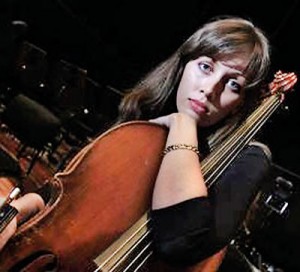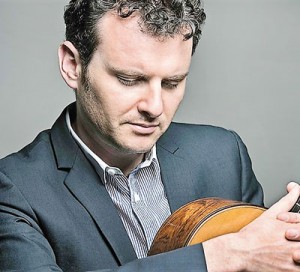Slava and Sharon in concert- A gift from Australia

Sharon Draper
Australia-Sri Lanka bilateral relations span 70 years. They began in 1947 when Sri Lanka was under British rule and Australia’s populace was homogenous and almost entirely European. Today, Sri Lanka is an independent republic and Australia is a paragon of multiculturalism laudably celebrating ethnic, cultural, linguistic and faith diversity.
The bilateral bonds between the two countries have typically entailed trade, education, training and humanitarian help; not a great deal has happened by way of art and cultural interactions.
Hence the celebratory concert at the Bishop’s College auditorium on January 24 presented by the Australian High Commission in association with the Chamber Music Society of Colombo was propitious and delightful.
The focus was on two affable and world-class Australian musicians: classical guitarist Slava Grigoryan and cellist Sharon Draper.
When Grigoryan won the Tokyo International Classical Guitar Competition, he was the youngest finalist ever to do so. This led to a recording deal with Sony Music Entertainment which resulted in the release of four solo albums. He has since moved to the ABC Classics label and has an impressive discography that includes award-winning recordings. Since 2010 he has been the Artistic Director of the Adelaide International Guitar Festival.
Sharon Draper studied at the University of Melbourne and the Australian National Academy of Music. Since 2013 she has been the cellist with the Australian String Quartet (ASQ) and before that was a member of the Melbourne Symphony Orchestra. Sharon is privileged to play on an AUD$1.83-million Guadagnini cello (c.1734) available to her by courtesy of the Ngeringa Arts Foundation.
The first two items in the evening’s programme were dedicated to works by Antonio Vivaldi and J.S. Bach, both from the Baroque era.
Vivaldi was probably the first composer to feature the cello in the sonata as a mature solo instrument in place of the viola da gamba and continuo.The A minor sonata for cello and guitar played by Slava and Sharon is a transcription of Vivaldi’s sonata for cello and harpsichord;the blending of classical guitar and cello in Baroque is somewhat uncommon if not challenging.The guitar wasn’t to be just a continuo; there was spirited dialogue between the duo in the space provided by two alternating pairs of slow and fast tempi.

Slava Grigoryan
The attention of at least some members in the audience might have been diverted by two distractions. One of them of course was benign. Given that the guitar is much associated with Spanish music, shades of the Flamenco crept into sacred baroque territory from Slava’s amplified foot-stamping-an unintended consequence! Cameramen darting hither and thither across the hall was an irritant to serious listeners.
In Sharon’s solo appearance she played three movements from the bible of cellists─Bach’s unaccompanied cello suites.The famed Prelude No.1 from the first suite, with conspicuous broken chords received a relaxed, austere treatment. The wistful Sarabande with harmonic double stops was longingly melodious. The superb tonal quality of the cello blossomed in the dry, natural acoustic of the auditorium.
The Argentinian-born Astor Piazzolia’s evocative “Cafe 1930” was soulful and nostalgic.
William Lovelady has composed works for some of the world’s leading guitarists including Slava. “The Sounds of Rain” came into prominence following Slava’s album “Another Night in London”. Its opening bars were reminiscent of a zither; the slow and rapid passages were just what a virtuosic guitarist would love.
And with a rendering of Enrique Granados’ “Five Tonadillas” all programme items were delivered to spontaneous applause.
But the renowned guitarist sprang a genial surprise. He returned to the stage saying reassuringly “this is the final item”. The welcome encore invoked Francisco Tárrega, father of the twentieth century guitar.Tárrega’s lyrically sweet and tremulously charming memories of Alhambra’s grandeur was a fitting finale to a memorable evening of music.


